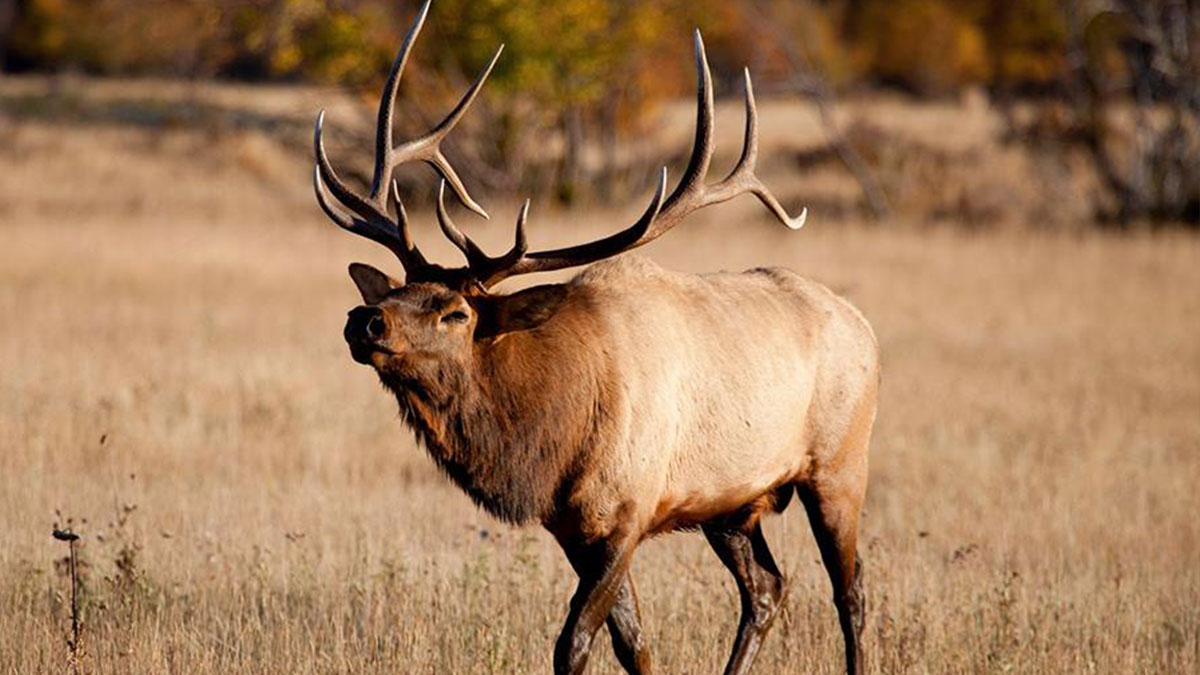FEDERAL
House, Senate Vote to Restore School Funding. The U.S. House of Representatives voted 424-1 and the Senate voted unanimously to pass the Protecting Hunting Heritage and Education Act, a bill to restore funding to schools that include archery and hunter education in their curriculums. The U.S. Department of Education blocked funding citing one line in the year-old Bipartisan Safer Communities Act that restricts funds being used to provide “a dangerous weapon” or “training in the use of a dangerous weapon.” RMEF members sent more than 8,200 messages to Capitol Hill, calling for the restoration of funding. The bill now sits on President Biden’s desk awaiting his signature, although there is no definite word if or when that might happen. RMEF calls on President Biden to support hunting, conservation and our children and sign it.
RMEF Objects to Mad Rabbit Trail Proposal in Colorado. RMEF filed a formal objection to the Forest Service’s initial approval of a major mountain bike trail development in the Routt National Forest and asked our members to contact their elected officials to also weigh in on the side of wildlife. Hundreds of RMEF members sent letters to Congress and to the governor asking that CPW and DNR be allowed to also object.
Farm Bill. The current Farm Bill expires at the end of September, and a new five-year bill needs to be constructed and passed. The Farm Bill has become a massive spending law—expected to be $1.4 trillion over the next 10 years—largely because of increases in nutritional welfare programs like SNAP. RMEF is fighting to maintain conservation programs like CRP, EQUIP and establish a better Forest Conservation Easement Program (FCEP). RMEF also supports the Voluntary Public Access Habitat Incentive Program (VPA-HIP) that helps states offer walk-in programs. RMEF staff and lobbyists spent August and September encouraging members of Congress to support these voluntary conservation programs when the bill gets assembled.
Endangered Species Act Modernization. RMEF’s Director of Government Affairs testified before the House Natural Resources Committee and the Western Caucus Endangered Species Working Group in September. RMEF focused on correcting the Cottonwood Decision, which has delayed and stopped hundreds of forest management projects because of endless Endangered Species Act re-consultation requirements. RMEF also offered perspective on litigious nonprofits that continuously sue federal land agencies and get their attorneys’ fees paid because the Equal Access to Justice Act has no means testing or limits for nonprofit organizations.
STATES
California. A federal court blocked implementation of a 2022 law the California legislature passed that blocked marketing firearms to minors and constrained a lot of standard efforts aimed at recruiting young people to hunting and conservation. That law will likely be stricken completely, but California followed up in September and passed AB 28 to drastically increase taxes on firearms and ammunition. It received the bare minimum 2/3 vote in the Senate on September 7th.
New Mexico. The periodic update of cougar and black bear regulations is currently before the New Mexico State Game Commission. Biologists recommend slight increases in bear harvest and slight decreases in lions based on their scientific monitoring of population. Anti-hunting and environmentalist organizations have tried to convince the commission to ignore the recommendations of its biologists and reduce predator hunting across the board. RMEF has engaged its members to support scientific management and approval of the agency’s recommendations.
Colorado. The US Fish and Wildlife Service has released its proposed 10j rule for wolf reintroduction, which, if finalized, will designate wolves as an experimental and nonessential population. This will provide more flexibility for the state in its voter-mandated reintroduction program. RMEF supports the 10j designation, even though the organization has opposed the forced introduction by ballot measure process. Assuming the 10j designation is finalized, CPW will need to find a source for its wolves. Taking wolves from places where they are listed on the Endangered Species List is not feasible, but three of the five (Idaho, Montana, Wyoming) states where wolves are not federally protected have rejected Colorado’s request. Washington has wolves listed on its state endangered species list, even in the portion of the state where they are not federally protected. Oregon has the fewest wolves and may not be able to sustain as a source. Where the wolves will come from on the arbitrarily established December 31 date has still not been determined.
Wyoming. Interim legislative committees have discussed elk regulations over the summer, but it is unclear if legislation will be introduced in 2024 as a result. The Joint Travel, Recreation, Wildlife and Cultural Resources Committee did not approve a bill that would have made transferable landowner licenses an option in units where elk are over objective. The Joint Agriculture, State and Public Lands and Water Resources Interim Committee considered draft legislation to authorize landowner compensation for damage caused by elk since the Wyoming Game and Fish Department is funded exclusively by license revenue.
Pennsylvania. A surprise amendment passed by the state Senate at the end of August would divert $150 million from the state Game Fund to a Chesapeake Bay clean water fund. This move would violate the Pittman Robertson Wildlife Restoration Act, which requires that hunting license fees and revenue from state game lands are to be controlled by state wildlife agencies and spent only on related wildlife management, hunters education and shooting range development purposes. RMEF and other hunting organizations have encouraged the legislature to change course, or the state risks losing their $41 million per years Pittman Robertson allocation derived from the tax on firearms, ammunition and archery tackle.
